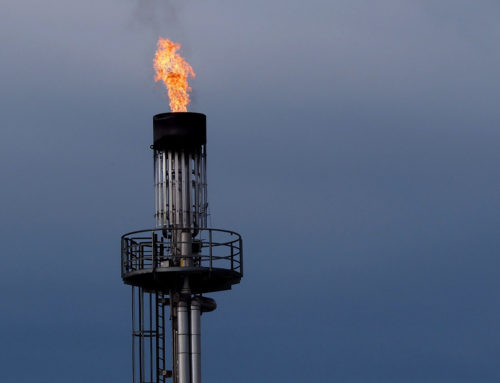Dear Natural Resources Committee Member:
Taxpayers for Common Sense Action urges you to oppose amendments to weaken key provisions in H.R. 2337, the “Energy Policy Reform and Revitalization Act of 2007” during committee consideration. Several provisions in this legislation would rein in the oil and gas industry and protect valuable taxpayer assets. For more than a decade, TCS has actively worked to end subsidies to mature energy industries and ensure that taxpayers receive a fair return on resources extracted from federal lands and waters. In an era of record profits, taxpayers should not continue to prop up the oil and gas industry. It is clear that current energy policies have not provided taxpayers relief at the pump but have instead further padded the pockets of Big Oil.
Here are some of the important provisions in H.R. 2337:
In Title II, sections 202 and 203 address the decline in royalty payments at the Minerals Management Service (MMS). In recent years, numerous management failures at the MMS have cost taxpayers billions of dollars in waste and lost royalty revenues. According to the Interior Department Inspector General, MMS’s current system of compliance reviews results in oil and gas royalty underpayments. H.R. 2337 would increase the use of traditional audits and lessen the reliance on compliance reviews. Further, it increases the penalties for the underreporting of royalties, which have gone unchanged since 1982.
Section 201 of H.R. 2337 addresses the Royalty-in-Kind (RIK) Program, which is ripe with abuse. The RIK program allows oil and gas companies to pay their royalty dues in the form of oil or gas instead of cash. This forces the federal government to market the oil and gas itself. The burden of marketing and selling oil and gas complicates government bureaucracy and leads to a lack of transparency. The Government Accountability Office has also raised questions about MMS’s ability to determine if sales from Royalty-in-Kind payments equal or exceed cash royalty payments. Given the current track record of MMS, we have little faith that this system can operate efficiently and for the benefit of the taxpayers. H.R. 2337 includes provisions that would limit the role of this program and make it less susceptible to wasting public dollars. Under this provision, RIK could only be used for the purposes of filling the Strategic Petroleum Reserve.
Additionally, H.R. 2337 includes several provisions that ensure the appropriate use of federal lands and benefit federal taxpayers. Title I, section 101, amends the 2005 energy bill and requires the oil and gas industry to compensate the Bureau of Land Management for the administrative costs associated with processing permits for drilling on public lands. The cost of using and profiting from public lands need to be borne by the beneficiary of access to public lands, and not borne by taxpayers. This bill would eliminate provisions that amount to millions of dollars in giveaways to oil and gas companies.
Section 222 of H.R. 2337 would also strengthen the mechanisms that are intended to help ensure that taxpayers aren’t stuck with the clean-up costs left by oil and gas development, by requiring companies to secure bonds that actually reflect clean-up costs. The current law is based on 1960 costs, and public dollars should not be used to clean up the mess left behind by private industry. In section 224, the bill also reins in speculative holdings by instituting a per acre fee to non-producing lands.
The bill also addresses concerns that Taxpayers for Common Sense Action has about the rush to develop oil shale on federal lands. The Rand Corporation recently voiced skepticism about oil shale development and recommended the federal government not invest in this technology given the lack of commitment from the private sector. Title I, Section 104, puts into place tighter standards for the emerging shale and tar sands leasing program. The future of oil shale and tar sands development is unclear and still far from commercial viability. Consequently, if this program is not closely monitored or does not have proper safeguards in place, it runs the risk of becoming yet another example of wasted federal resources. Section 104 provides a more cautious and thoughtful approach to oil shale development.
We urge you to support these efforts to reform oil and gas subsidies by opposing any amendments to weaken these provisions. This is an important first step to ending the expensive and irrelevant oil and gas giveaways. Please contact me or Autumn Hanna, Taxpayers for Common Sense Action at 202-546-8500 or ten.reyapxat@nmutua if you have any questions or would like more information.
Sincerely,
Ryan Alexander
President










